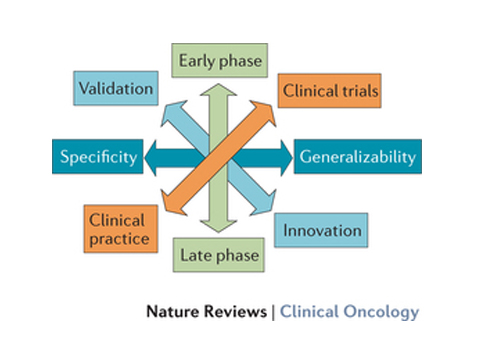

Assessing tumour growth and cancer cell proliferation in patients is important both for judging the effectiveness of individual treatment and for the evaluation of therapies in clinical trials. EORTC was among the international organisations that developed RECIST (Response Evaluation Criteria in Solid Tumours), a method of determining whether tumour measurement data can allow the conclusion

The iRECIST guideline addresses the singularities of immunotherapies, ensuring consistent trial design and interpretation of tumour progression measurements for immune modulators. The guideline takes into account distinctive behaviours linked to these types of therapeutics, such as delayed responses after pseudoprogression, and describes a standard approach to solid tumour measurement and definitions for objective change in tumour

The RECIST Working Group published their view on the continued relevance of RECIST guidelines and on the challenges to maintain RECIST as a standard for the assessment of tumour burden in clinical trials. “While we recognise that RECIST cannot accommodate all possible protocol specificities, it remains the only general tool that provides harmonisation of tumour

Hear Larry Schwartz summarize the latest work from the RECIST Working Group. One focuses on clarifying the interpretation of RECIST 1.1, and one provides a summary of current widely accepted alternatives to RECIST in certain specific disease settings. In “RECIST 1.1 – Update and Clarification: From the RECIST Committee”, the working group has summarized frequently